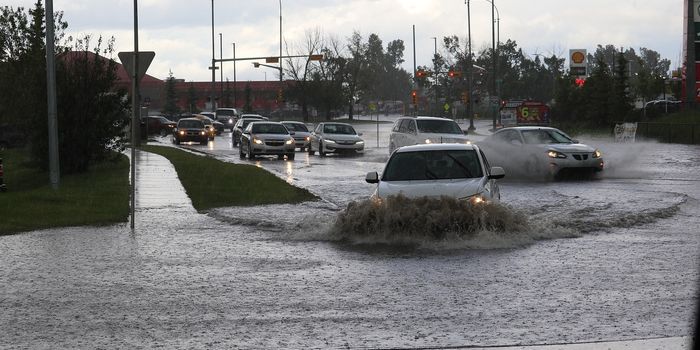Considering the water costs of biofuel production
As the world turns more toward the direction of sustainable energy investment, biofuel stands out as an alternative to fossil fuels. However, a recent study published in Nature Communications cautions that without sustainable water management, bioenergy is not as green as it may appear. Biofuel production requires huge amounts of fresh water for irrigation as well as vast areas of land. Now, this new research asks a crucial question: is there a more responsible way to cultivate biofuels that doesn't put more water stress on the planet?
"Irrigation of future biomass plantations for energy production without sustainable water management, combined with population growth, could double both the global area and the number of people experiencing severe water stress by the end of the century, according to our computer simulations," says lead author Fabian Stenzel from the Potsdam Institute for Climate Impact Research (PIK). "However, sustainable water management could almost halve the additional water stress compared to another analyzed scenario of strong climate change unmitigated by bioenergy production."
But, what exactly does sustainable water management look like in a world plagued by drought and water wars, where access to clean water is supposedly a human right but an estimated 29% of the global population lives without it?
"Sustainable water management means both political regulation -- such as pricing or water allocation schemes -- to reduce the amounts of water taken from rivers as well as on-farm improvements to make more efficient use of the water," comments co-author Sylvia Tramberend. "Moreover, sustainable water management includes the preservation of reliable river flows to ensure undisturbed ecosystems in and alongside rivers. Up- and downstream river management may in fact require international cooperation calling for more transboundary river management as well as between different water users -- that's the challenge ahead for integrated water resource management."
The team says that water scarcity is a significant factor to consider in climate mitigation plans that address the world’s Sustainable Development Goals. If we are to limit global temperature rise to 1.5 degrees Celsius, as agreed in the Paris Climate Accords, biofuel plantations and carbon capture and storage (CCS) will likely be of several paths forward. However, the team says according to their computer simulations, “The substantial irrigation implied in a bioenergy plus CCS scenario including population growth suggests a 100% increase in the number of people facing water stress.” The same scenario but with sustainable water management implemented would cut water stress down to a 60% increase, which still isn’t great but is better than a 100% increase.
"The numbers show that either way, sustainable water management is a challenge urgently to be addressed," says co-author Wolfgang Lucht. "This new study confirms that measures currently considered to stabilize our climate, in this case, bioenergy plus CCS, must take into account a number of further dimensions of our Earth system -- water cycles are one of them. Risks and tradeoffs have to be carefully considered before launching large-scale policies that establish biomass markets and infrastructure. The concept of Planetary Boundaries considers the whole Earth system, including but not limited to climate. Particularly the integrity of our biosphere must be acknowledged to protect a safe operating space for humanity."
Sources: Nature Communications, Science Daily








